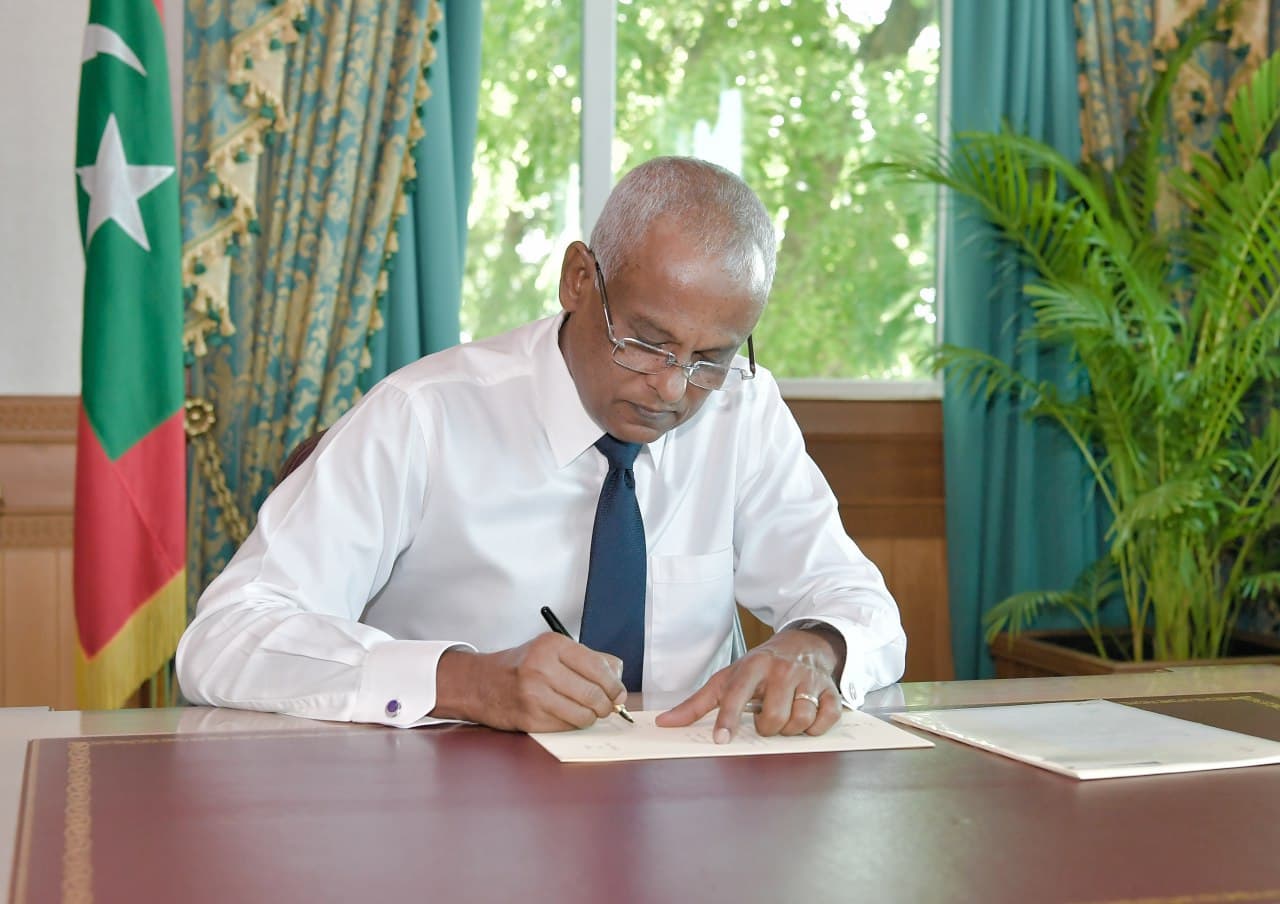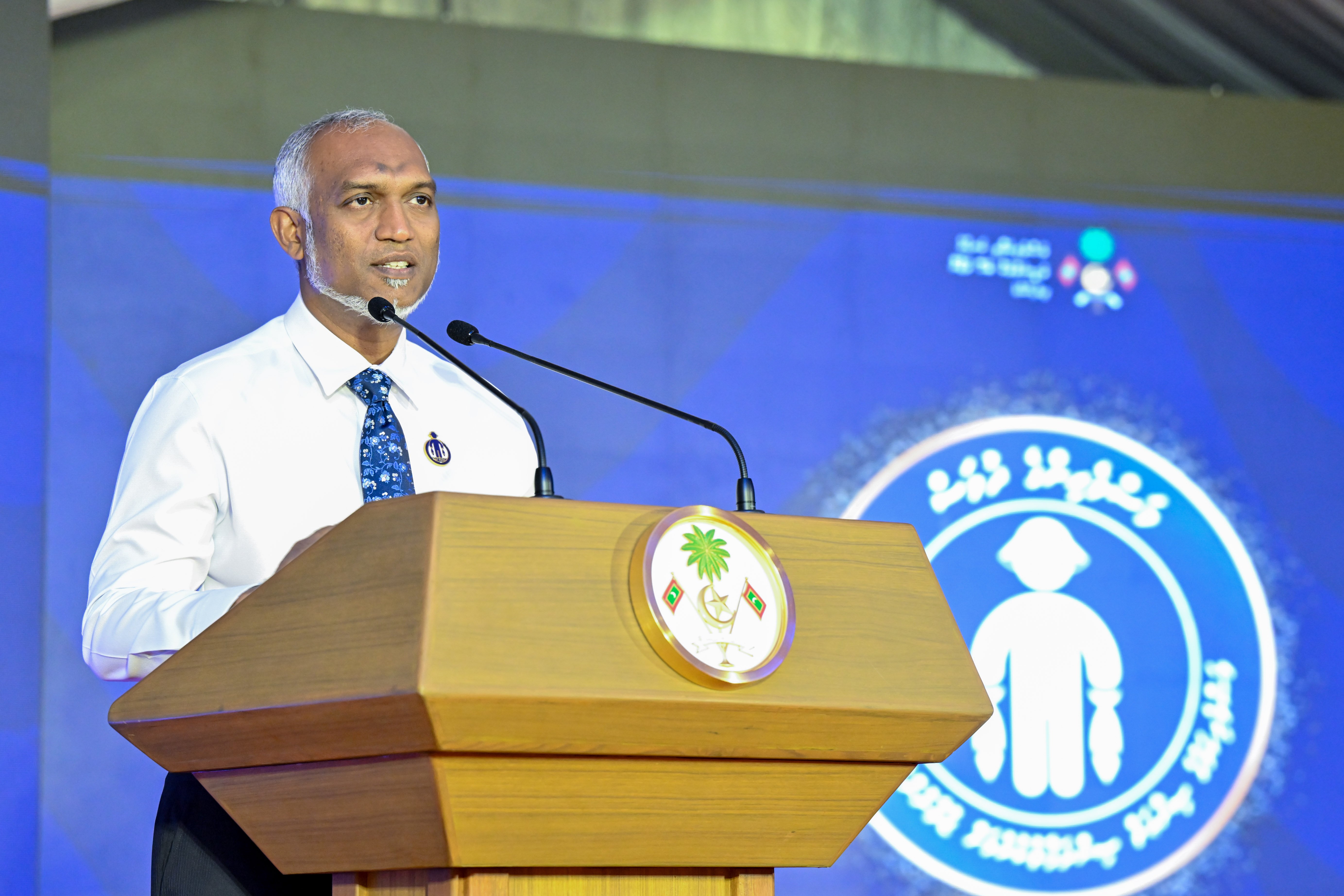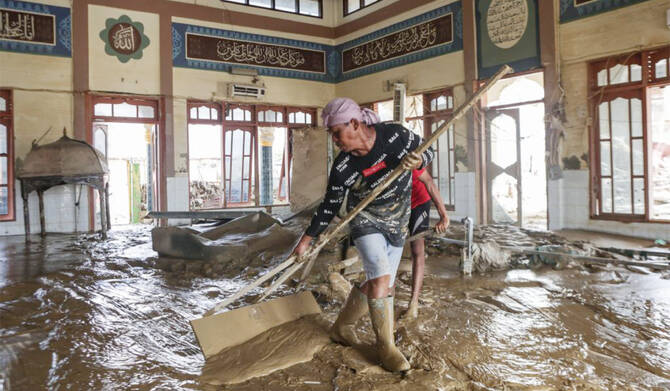President Ibrahim Mohamed Solih has today ratified the Climate Emergency Act (Act no. 9/2021) and the National Payment System Bill (Act No.: 8/2021).
The Climate Emergency Act stipulates actions to address the climate emergency resulting from the swift acceleration of the severity of the repercussions from climate change. It introduces the legal structure and guidelines for addressing issues and concerns related to climate change, including reporting, ensuring the sustainability of natural resources, overcoming negative impacts, and allocation of funds for renewable energy sources.
The Act further includes the complete framework for Maldives' ambitious plan to achieve net-zero carbon emissions by 2030. Under this plan, the Minister is mandated to submit the subsequent year's national carbon budget to the Parliament for approval 3 months before the end of each year. It also specifies the Minister to constitute an office under the Ministry as 'Climate Change Directorate', mandated with leading Maldives' interests in the international arena with regards to the climate emergency.
The Climate Emergency Act also charges the President to appoint a Special Envoy for Climate Change, to serve as Maldives' international advocate against climate change, within 30 days of the Act coming into force. The Special Envoy for Climate Change would represent the Maldives globally in creating diplomatic ties, strengthening multilateral relationships in alignment with climate goals, and acquisition of foreign aid for projects related to climate change, environmental sustainability, and renewable energy.
The Climate Emergency Bill was passed by the Parliament at the 37th sitting of its first session, on Thursday, 29th April 2021.
The National Payment System Bill, ratified today, seeks to improve the existing national payment system, and govern its operations. It also provides ways to establish interoperability amongst payment systems, clearing systems, installment systems, and relevant bodies that provide similar services.
The legislation further prioritizes maintaining the confidentiality of customers and outlines a framework for fulfilling this purpose. It further aims to promote healthy competition amongst service providers. The newly-ratified Act confers all powers of overseeing and regulating the National Payment System to the Maldives Monetary Authority (MMA). MMA would also be responsible for enforcing the law.
Parliament passed the National Payment System Bill on April 27, 2021, at the 35th sitting of the first session of this year.
Upon ratification, both the Acts have now been published in the Government Gazette.
The Climate Emergency Act stipulates actions to address the climate emergency resulting from the swift acceleration of the severity of the repercussions from climate change. It introduces the legal structure and guidelines for addressing issues and concerns related to climate change, including reporting, ensuring the sustainability of natural resources, overcoming negative impacts, and allocation of funds for renewable energy sources.
The Act further includes the complete framework for Maldives' ambitious plan to achieve net-zero carbon emissions by 2030. Under this plan, the Minister is mandated to submit the subsequent year's national carbon budget to the Parliament for approval 3 months before the end of each year. It also specifies the Minister to constitute an office under the Ministry as 'Climate Change Directorate', mandated with leading Maldives' interests in the international arena with regards to the climate emergency.
The Climate Emergency Act also charges the President to appoint a Special Envoy for Climate Change, to serve as Maldives' international advocate against climate change, within 30 days of the Act coming into force. The Special Envoy for Climate Change would represent the Maldives globally in creating diplomatic ties, strengthening multilateral relationships in alignment with climate goals, and acquisition of foreign aid for projects related to climate change, environmental sustainability, and renewable energy.
The Climate Emergency Bill was passed by the Parliament at the 37th sitting of its first session, on Thursday, 29th April 2021.
The National Payment System Bill, ratified today, seeks to improve the existing national payment system, and govern its operations. It also provides ways to establish interoperability amongst payment systems, clearing systems, installment systems, and relevant bodies that provide similar services.
The legislation further prioritizes maintaining the confidentiality of customers and outlines a framework for fulfilling this purpose. It further aims to promote healthy competition amongst service providers. The newly-ratified Act confers all powers of overseeing and regulating the National Payment System to the Maldives Monetary Authority (MMA). MMA would also be responsible for enforcing the law.
Parliament passed the National Payment System Bill on April 27, 2021, at the 35th sitting of the first session of this year.
Upon ratification, both the Acts have now been published in the Government Gazette.


















